Demonstrate Fiscal Responsibility
Following the development of the organization’s five-year strategic plan, yet prior to the emergence of COVID-19 and the postponement of the Tokyo Games, the USOPC recognized the need to more strategically leverage existing assets and partnerships, diversify its revenue streams and align the organization’s stated priorities with its allocation of resources. The need to make changes was profoundly accelerated and expanded by the unforeseen circumstances of 2020, which shifted both revenue and expenses into 2021, as the USOPC adapted to the unprecedented schedule of three Olympic and Paralympic Games in four years.
Financial Stability
As the USOPC prepared for significant financial impacts due to the pandemic and Tokyo Games postponement, it took a thoughtful, proactive and mission-driven approach to effectively manage the organization’s financial stability, both in the near and long-term. The USOPC completed a thorough review and reduction of expenses in May, making the necessary decisions to balance revenue and expenses over a two-quad period while preserving its commitment to increase investments in good governance, and athlete safety, wellness and sport funding with National Governing Bodies.
Overall, the USOPC reduced its expenses by approximately 12.5% over the five-year 2020-2024 period and reduced general and administrative costs by 14%. These reductions allowed the USOPC to weather the impacts caused by the Games postponement and positioned the organization to manage other potential financial fluctuations while investing in its mission and strategic programs for years to come.
However, like so many around the world, the USOPC had to make meaningful changes in many areas to do so. Ultimately, 18% of the USOPC’s workforce was impacted by voluntary or involuntary departures, and 7% of team members were offered reassignments to new roles. USOPC CEO Sarah Hirshland took a voluntary 20% cut in salary, and the USOPC executive team also saw a voluntary 10% cut in pay – both extending through the end of the year. The USOPC also accounted for revenue fluctuations in the longer term following the Paris 2024 and Los Angeles 2028 Games.
As part of the organization’s stewardship of Team USA, the USOPC also created the Financial Stability Working Group to explore options that would allow it to preserve financial health and effectively manage any potential future impacts to revenue. Per the group’s recommendation, the USOPC made the proactive decision to borrow private placement bonds to help manage short-term cash flow and maintain critical support for athletes and NGBs. The USOPC’s strong financial position made this strategy possible and well-positioned to request additional support in the financial markets should future Games be adversely impacted.
Partners
The USOPC’s diverse partners continue to be critically important to the success of Team USA. In 2020, the USOPC engaged 33 sponsors and dozens of licensees to drive $130 million dollars, fueling the USOPC’s ability to serve Team USA athletes.
Wordldwide














Domestic


















Broadcast

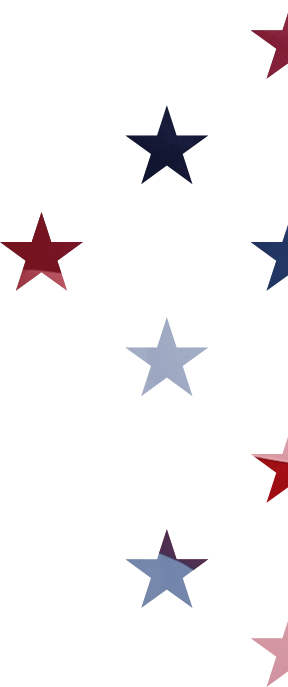
Ongoing Progress and Reform
Team USA and the Olympic and Paralympic movements continue to attract the partnership of many of the world’s greatest brands, ensuring the long-term health and stability of the U.S. Olympic & Paralympic Committee and the athletes, National Governing Bodies and programs it supports.

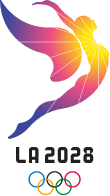
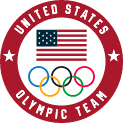
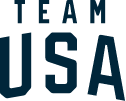
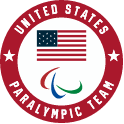

Following the awarding of the 2028 Olympic and Paralympic Games to Los Angeles and pursuant to International Olympic Committee rules, the USOPC and LA28 formed a joint venture - U.S. Olympic and Paralympic Properties - to manage the sales and fulfillment of domestic Olympic and Paralympic marketing rights for both Team USA and LA28, from 2021 through the 2028 Games. This partnership enables LA28 to raise funds for the Games while maintaining long-term USOPC viability.
The USOPP also supports domestic marketing rights for partners in the IOC’s The Olympic Partners program, with 15 corporations currently in its global partnership portfolio.
U.S. Olympic Endowment
Established in 1984 to administer and invest the surplus funds generated from Games of the XXIII Olympiad in Los Angeles, the U.S. Olympic Endowment is an independent nonprofit that provides critical long-term financial support for the USOPC and its member organizations.
By building a strong and secure financial base, the Endowment ensures the USOPC can meet its most pressing needs, particularly the well-being of its athletes and the National Governing Bodies and High Performance Management Organizations who support them. As the USOPC faced unprecedented financial challenges due to the pandemic and Tokyo Games postponement, it was critical to preserve this asset for future generations of athletes. In the past 35 years, the endowment’s net assets have grown to approximately $225 million, while awarding grants to the USOPC to allocate across its member organizations, totaling more than $351 million—including $10.3 million in 2020.

U.S. Olympic & Paralympic Foundation
The U.S. Olympic & Paralympic Foundation generates philanthropic funding to support Team USA athletes on and off the field of play. Since its founding in 2013, the foundation has raised more than $185 million, helping thousands of athletes achieve their lifelong dreams of competing at the Olympic and Paralympic Games.
One hundred percent of unrestricted gifts to the USOPF go to athletes and the high-performance programs that help them succeed. Click here for the USOPF’s 2020 Impact Report.

In 2020, donors to the USOPF contributed more than $21.4 million to support Team USA athletes through the challenges posed by the COVID-19 pandemic and the postponement of the Olympic and Paralympic Games Tokyo 2020. Gifts came from 51,519 individuals from all 50 states, and 5,844 donors made their first gift to the USOPF in 2020, representing a 25% increase in new donors over 2019.
Of all donor contributions in 2020, $14.5 million came in the form of general use funding from Team USA Fund and Team USA Giving Circle donors, as well as USOPF Directors, Trustees and other major donors. This funding went to the athletes, sports and initiatives in greatest need, supporting things like virtual strength and conditioning help, nutrition resources and coaching. Current use gifts via the USOPF also allowed the U.S. Olympic & Paralympic Committee to safely serve athletes at the U.S. Olympic & Paralympic Training Centers in Colorado Springs, Colorado, and Lake Placid, New York, and at the Elite Athlete Training Center in Chula Vista, California.
Off the field of play, donors ensured that Team USA athletes had the resources they needed to pursue their goals away from sport and turn the challenges of 2020 into opportunities. Nearly 220 Team USA athletes received tuition grant support, a significant portion of which came from donors. Notably, 40 athletes, inspired by the global fight against COVID-19, enrolled in programs in the medical field, the second-most popular major behind business.
Donors also helped athletes take care of their mental health. In September 2020, the USOPF welcomed its first Mental Health Ambassadors, Yucca and Gary Rieschel. Through The Rieschel Foundation, the family established the Mental Health Fund, which supports the USOPC’s mental health offerings. Donor support provided funding for the USOPC to hire and retain a director of mental health as well as three mental health officers. These staff members have expanded the organization’s telehealth resources, created a mental health emergency action plan and established the USOPC’s mental health registry, which allows Team USA athletes to seek in-person mental health care with licensed therapists in their area.
The foundation’s impact on Team USA was bolstered by its leadership group, which includes the USOPF Board of Directors and the USOPF Trustee Council. In addition to raising funds for and awareness of Team USA athletes’ needs, this insightful group of philanthropists advocates for the foundation within their networks and encourages others to get involved with the USOPF. Trustees and the board, chaired by Gordy Crawford, encouraged the foundation to explore unique ways to support Team USA through the hardships of 2020 and continue to gather virtually to celebrate the Olympic and Paralympic movements. Their leadership resulted in additional funding for athletes in need and the creation of a new webinar series for fans and donors to engage in the most pressing topics in sport.

Key Spotlights
COVID Athlete Assistance Fund
In the spring of 2020, 75% of athletes reported losing some income as a result of the COVID-19 pandemic, with one in four disclosing that they lost more than half their income.
To meet the overwhelming need of Team USA athletes, the USOPF launched the COVID Athlete Assistance Fund in July, encouraging both current supporters and fans of Team USA to go above and beyond for athletes in a time like no other. Donors answered the call—with a lead gift from The Pershing Square Foundation, 6,000 unique supporters gave $1.42 million in just two months.
The result? More than 1,200 athletes received a supplemental stipend of $1,163, above and beyond their Elite Athlete Health Insurance and direct athlete support stipends. Athletes reported spending their COVID Athlete Assistance Fund stipends on things like quality nutrition, bills, private coaching, weight equipment for home gyms and switching to part-time work to focus on training.
Technology & Innovation Fund
With many athletes shifting to at-home workouts and increasingly trying to understand their performance, the USOPC’s donor-supported Technology & Innovation Fund offered more virtual resources and tracking tools than ever before.
In 2020, the fund prioritized several projects related to Athlete 360, the USOPC’s athlete wellness database that uses subjective survey data to inform training frequency and intensity. One of these projects was a partnership with Notemeal, a tool for the USOPC’s sport dietitians to provide virtual meal plans and communicate remotely with athletes.
The fund also continued to support Tokyo-focused projects. By investing in performance-impacting ideas that will benefit boxing, gymnastics, rugby, sailing, synchronized swimming, table tennis, triathlon, weightlifting and more, donors to the fund will see the result of their generosity when Team USA athletes make history at the upcoming Olympic and Paralympic Games.
USOPF board of directors
- Dwight Anderson
- Nancy & Tim Armstrong
- John Babcock
- Andrew F. Barth
- Corica & Anthony Bates
- Tracey & Edward Benford
- James Benson
- Ray Bingham
- Michael Carter
- Kevin Clifford
- Molly & Robert Cohen
- Robyn Coles & Dr. N. Anthony Coles
- Gayla & Kevin Compton
- Philip H. Corboy
- Gordon Crawford
- Brian Deevy
- Gina & Daniel Dickinson
- David Dollinger
- Jacqueline & Christian Erdman
- William May Garland, III
- John Goldman
- Joanie Hall
- James W. Hirschmann III
- Katherine Kendrick
- Jonathan Ledecky
- David Leuschen
- Alicia Miñana & Robert Lovelace
- Dudley & John G. Macfarlane III
- Lynda & John Marren
- Aria Mehrabi
- Joy & Thomas M. Mistele
- Corinne Nevinny
- Erica & Kevin Penn
- Tracey & Brad Powell
- Anthony Pritzker
- Michael Ray
- Yucca & Gary Rieschel
- Johnathan Robertson
- Martha & Greg Rosenbaum
- Lizanne & Barry Rosenstein
- Susan Schnabel & Edward Plummer
- Lisa & Dmitri Shklovsky
- Barry Sternlicht
- Mary & Mark Stevens
- Steven Strandberg
- Benjamin Conrad Sutton, Jr.
- Shelia & William Walker
- Stuart Weitzman
- Lisa & Greg Wendt
- Geoff Yang
- Sarah Hirshland, Ex-Officio
- Susanne Lyons, Ex-Officio
USOPF trustees
- Susan & Thomas Abraham
- William Ackman
- Stacie & Daniel Allen
- Janice & Matthew Barger
- Donnalisa & William Barnum
- Alan Berro
- Allison & David Blitzer
- Scott Brittingham
- Mary Beth & Philip Canfield
- Richard M. Cashin Jr.
- Scott Collins
- Joan Criswell
- Eduardo Cue
- Julia & Jim Davidson
- James Dinan
- Laura DeBonis & Scott Nathan
- Janine & Robert Dodson
- Andie Doyle
- Kristin Ehrgood
- Scott Freidheim
- Stephen C. Freidheim
- Holly & T. Bondurant French
- Sandra Gale
- Kenneth Goldman & Susan Valeriote
- Julia & Ken Gouw
- Helen & Scott Graves
- Ken Griffin
- Ashley & Ken Hanscom
- David Heller
- Sabrina & Marco Hellman
- Kristy Hinze
- Jihee & Peter Huh
- William Hybl
- Julie Jensen
- Tracy & Gregory Johnson
- James Keller
- Rosalind & Michael Keiser
- Margaret & Michael Kerr
- Julie & Gary Killian
- Karen & Greg King
- Nancy Kohl
- Jeffrey Levitetz
- Oskar Lewnowski
- Robin & Court Lorenzini
- Tisha & Mark Marinella
- Mari Sinton-Martinez & Paul Martinez
- Michael S. Meldman
- Robert Merrilees
- Fred A. Middleton
- Allison & Roberto Mignone
- Sage & Tony Minella
- Danielle H. Moore
- Ellen & Daryl Morey
- Vadim Nikitine
- Stephanie & Peter Nolan
- Greg Penner
- Senenne & Dr. Marc Philippon
- Cassandra & Gary Pietrok
- David Poms
- Nancy & Lawrence Probst III
- Marie & John Queen
- Tricia & Alan Ratliff
- Steven Raymond
- Kevin Reid
- Aileen & Brian Roberts
- Stephanie & Mark Robinson
- Duke Rohlen
- Muneer Satter
- Jeffrey S. Shilt
- Marla & Dr. Richard M. Seldes
- Eileen & Kevin Shields
- Salem Shuchman & Dr. Barbara Klock
- Daniel Simkowitz & Mari Nakachi
- Paula Sindberg
- Cindy & John Smet
- Joel Smilow
- Ross Stevens
- Gene Sykes
- Peter Tomozawa & Donna LeDuc
- Katherine & Matthew Waldman
- James E. Walker, III
- Shirley & Walter Wang
- Casey Wasserman
- Martin & Lori Weinstein
- Kevin D. White
- Jeff Williams
- Angelique & Andrew Wilson
- H. S. Wright III & Katherine Janeway
- Jeff Xiong & Rita Hu
- Heesun & Harry You
- Dian & Karl Zeile
- Lisa & Dan Zelson
- Karen Zimmer